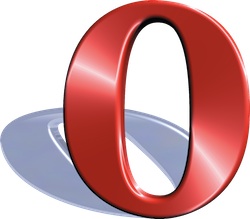Norway’s Opera Software estimates that it has as about 1,5m active users of its Web browser software for mobile phones in SA.
Opera, which develops browsers for a range of mobile handsets and for desktop computers, has enjoyed exponential growth of its products on cellular phones, especially on lower-cost devices.
Opera Software chief strategy officer Rolf Assev says the strong growth in SA can be attributed to the high penetration of low-cost handsets in the country. Opera’s Java-based Opera Mini browser is well suited to running on less powerful cellphones, he says.
Assev, who was speaking to TechCentral in an exclusive interview last week in Sandton, where he was part of a Norwegian trade delegation visiting SA, reckons Opera Mini is used by about 40m users worldwide.
“Many of these users are from Africa,” Assev says. Opera has partnerships on the continent with Vodacom, MTN and Orascom. “We are by far the biggest mobile browser in use worldwide with the iPhone’s browser [Safari] coming in at number two.”
He says Opera has shipped 60m mobile browsers in partnership with cellular handset manufacturers.
SA has the most Opera Mini users in Africa, followed by Nigeria, and then Kenya. However, Kenyans use the software the most, accessing on average 18 Web pages a day using the application.

Assev says people tend to use their phones to access exactly the same pages they would from their computers.
Opera, which was founded in 1995 as a spin-off of telecommunications company Telenor, has had less success with its PC-based Web browser. Though the company has developed a range of world firsts in browsers — including tabbed browsing and mouse gestures — the company languishes with less than 2% market share.
But Assev insists Opera has no plans to exit the desktop browser market — in spite of stiff competition for its product from Internet Explorer (developed by Microsoft), Firefox (Mozilla Corp), Safari (Apple) and, most recently, Chrome (Google).
“We make US$20m/year from desktops,” Assev says. Most of this revenue is generated from Web search companies such as Google and Baidu and online retailers such as Amazon.com and eBay paying to feature in the Opera browser’s search bar.
Opera hopes innovation will keep it in the game.
The latest version of its Web browser, Opera 10.10, has several features its rivals don’t yet offer. These include a “Turbo engine” that makes browsing quicker for people on limited bandwidth (much needed in Africa) and Unite, which turns the browser into a server. This makes it possible to share information on your PC with other Internet users quickly and easily. — Duncan McLeod, TechCentral





